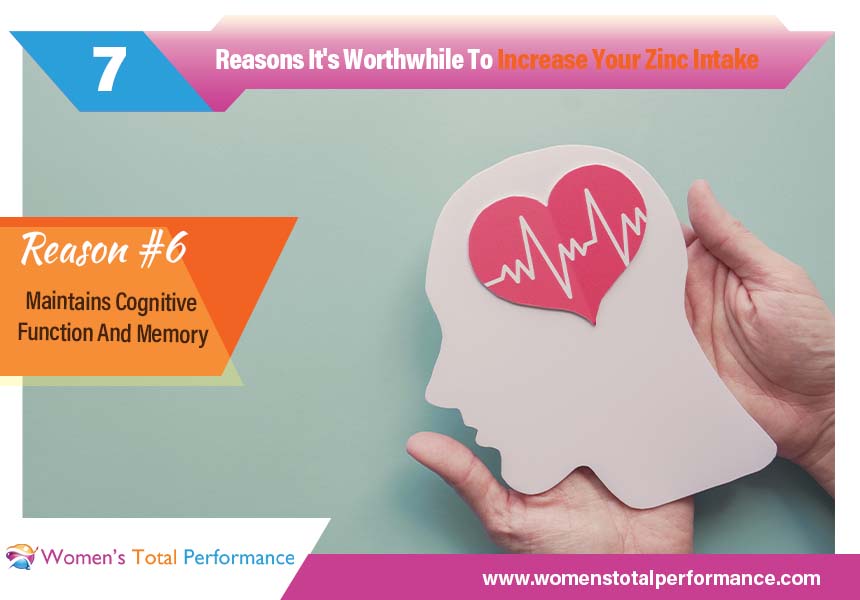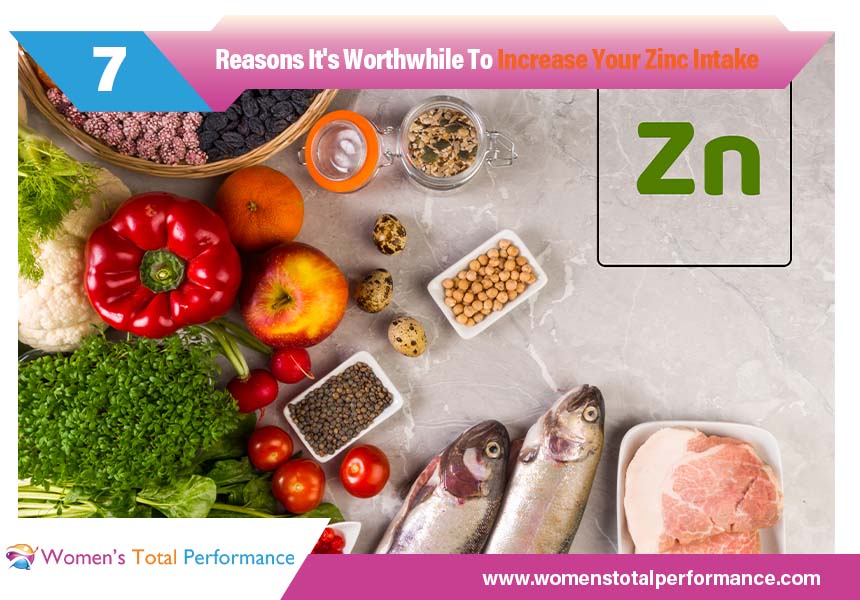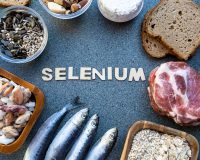7 Reasons It’s Worthwhile To Increase Your Zinc Intake
Did you know that zinc is a mineral that plays a significant role in human health? Zinc is found in every cell of the body and plays a role in many critical functions. Zinc is important for growth and development, immune system function, wound healing, and eye health. In this article, we will discuss seven surprising health benefits of zinc.
The list of zinc advantages is lengthy, but certain themes appear in all of the methods it may help your health. All of these varied (and scientifically proven) advantages make it worthwhile to increase your zinc intake or take supplements to ensure that you’re getting enough each day. Once you have finished reading, you will be eager to start benefiting from the health benefits of zinc.

1Shortens The Duration Of Colds
Zinc has been shown to shorten the duration of colds. In a study published in The Journal of Infectious Diseases, participants were given zinc lozenges within 24 hours of the onset of symptoms and again after 48 hours. The median duration of their cold was reduced by 42%! Zinc has also been shown to reduce the severity of cold symptoms.
Zinc is an element that your body needs to function. It’s one of the ten essential ingredients for human health. Zinc is one of the most effective cold relief treatments out there, and it’s able to shorten the duration and severity of colds.

2Helps Fight Off Infections
Zinc is essential for a healthy immune system. It helps fight off infection and supports the growth and activity of white blood cells. Zinc is also crucial for DNA synthesis, which is necessary for cell division and growth.
Zinc is a significant trace element, meaning that it’s vital for survival and good health. Without zinc in our diets, we could not fight off viral infections or obtain certain nutrients. Zinc is one of the most important nutrients for a healthy immune system.

3Helps Wounds Heal Faster
Zinc plays a vital role in wound healing. It helps maintain skin integrity and collagen production and protects against infections. Zinc deficiency can slow wound healing significantly. Supplementing with zinc may help wounds heal faster.
As a component of metalloproteinases, zinc can be used to help wounds heal. By acting as an enzyme activator, it speeds up the rate at which the skin grows over the wound site. This can decrease healing time and reduce scarring.

4Supports Healthy Vision
Zinc is crucial for eye health. It helps maintain the health of the cornea and retina and supports healthy vision. Zinc deficiency can lead to eye problems, such as night blindness, dry eyes, and optic neuropathy. Supplementing with zinc may help protect your vision and keep it healthy over time.
If you are deficient in zinc, your eyesight can be adversely affected. Zinc is a mineral that plays a vital role in vision. It also helps maintain your immune system and promotes healing, both of which are critical for preventing vision problems.

5Helps With Diabetes
Zinc is beneficial in treating diabetes. One study showed that supplementation with zinc improves blood sugar control and reduces insulin resistance. Another study showed that zinc supplements help improve glycemic control and lipid profiles in people with Type II diabetes.
Adding zinc to your diet may help you manage your diabetes better. People with diabetes should consider taking supplements of zinc. There is evidence that zinc can lower the levels of glucose in your blood.

6Maintains Cognitive Function And Memory
Zinc is important for brain function. It helps maintain cognitive function, memory, and learning ability. Zinc deficiency has been linked to problems with cognition and mental health. Supplementing with zinc may help keep your brain healthy and functioning well.
Zinc is needed for a chemical reaction in the brain known as synaptic firing. This helps us learn new information. Studies have shown that individuals with low levels of zinc generally perform poorly on tests measuring learning and memory skills.

7Helps Maintain Testosterone Levels
Zinc is necessary for the production of testosterone. It helps maintain testosterone levels in men and supports reproductive health. Zinc deficiency can lead to low testosterone levels and infertility.
Supplementing with zinc may help improve testosterone levels and improve reproductive health. Zinc is an element that is necessary to produce testosterone. It’s crucial for the production of sperm and male sexual health.

Although zinc is a mineral, it’s considered an essential element. This means that you must get your zinc through either food or dietary supplements because the body can’t produce it on its own. Zinc is found in every cell of the body, and it’s a critical part of many aspects of your health. In this article, we discussed seven surprising health benefits of zinc.
The list of zinc advantages is long and unique, but there are a few recurring themes in all the ways it may benefit your health. All these diverse (and scientifically validated) advantages make it worthwhile to increase your zinc intake or take supplements to ensure that you’re getting enough each day. Now that you have finished reading, you can take advantage of the health benefits of zinc.






